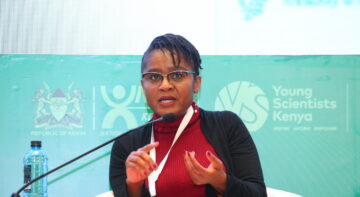News

Nairobi – The African Institute for Development Policy (AFIDEP) has launched the Health Tech Platform, which is an African driven advocacy platform that will facilitate informed, objective, inclusive and balanced discussions on the design, development and use of transformative technologies to address key health challenges in sub-Saharan Africa.
The African Union’s development road map -Agenda 2063- recognizes the critical role of technology as a catalyst for growth on the continent. Emerging transformative technologies such as genetically modified mosquitoes, drones and artificial intelligence have high potential to change the trajectory of disease and general well-being if they are successfully developed and effectively deployed. But, do they stand a chance?
“A number of factors undermine efforts to develop and promote use of transformative technologies,” says Dr. Rose Oronje who is Director of Public Policy and Communication at AFIDEP and leading the Health Tech Platform. “These include minimal participation and engagement by scientists on the continent, lack of knowledge or limited understanding of these emerging technologies among members of the public, policymakers and other stakeholders, and lack of accessible platforms to engage with developers of the transformative technologies.”
These challenges are made worse by lack of clear policies and regulatory frameworks needed to guide the development of the technologies, and a host of ethical, social and cultural concerns.
The Health Tech Platform will ensure that Africans are meaningfully involved in driving conversations about the need for and effectiveness of transformative tools and technologies for tackling the continent’s health challenges. The initiative will use multi-pronged advocacy approaches and tools to engage a wide range of stakeholders including policymakers, scientists, academics, ethicists, gender experts, media/journalists, and civil society actors.
“The platform will expand the spaces where Africans can have open and transparent conversations on the need for transformative technologies, and the safety and ethical questions they have relating to these technologies,” says Dr. Oronje.
Dr. Eliya Zulu, Executive Director of AFIDEP, sees a lot of possibilities in these technologies to address the high disease burden in Africa. “Longstanding diseases like Malaria exert a huge health and socioeconomic burden on families across the continent. Efforts to eradicate them should explore widespread use of transformative technologies that have potential to transform disease trajectory or enable services to reach isolated geographical areas.” Dr. Zulu adds that “African governments should prioritise efforts that address the gaps in current regulatory frameworks to facilitate development of the emerging transformative technologies and enable widespread use of those proven to be safe and effective”.
The three-year project is funded by the Bill & Melinda Gates Foundation. The Health Technologies Platform initiative will leverage on AFIDEP’s continental expertise to convene and influence policy discourses using evidence.
AFIDEP will implement the project in partnership with relevant organisations in selected countries and at regional level. The initiative seeks to realise a stronger African voice and leadership, as well as increased policy commitment and action on transformative health technologies.
***ends***
About AFIDEP
AFIDEP aspires for an Africa where evidence transforms lives. AFIDEP works towards systemic actions that drive a cultural shift from low or sporadic evidence use to a setting where evidence is actively sought and used routinely in public policy decision-making so that the right investments are made towards the transformation of people’s lives for the better.
Contacts: htp@afidep.org
Learn more on: https://www.afidep.org/programme/health-tech-platform-htp/
Twitter: @htp_Africa
Related Posts





